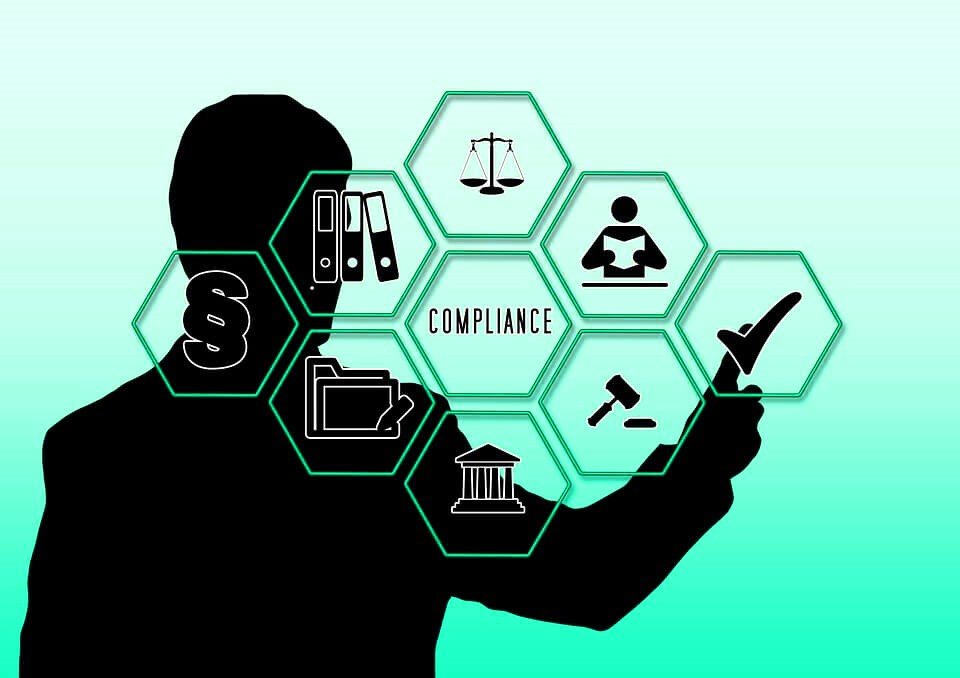Business Law Essentials for Entrepreneurs

Entrepreneurs embark on a thrilling journey, navigating the dynamic landscape of business. Amid the excitement, it’s crucial to grasp the fundamentals of business law—a cornerstone for sustainable success. From choosing the right legal structure to safeguarding intellectual property, understanding the intricacies of business law is a non-negotiable aspect of entrepreneurship.
The Importance of Understanding Business Law
Protecting Your Business Interests
One of the primary reasons to grasp business law is to safeguard your business interests. Whether it’s drafting contracts, protecting intellectual property, or resolving disputes, legal knowledge is your armor against potential threats.
Legal Compliance and Regulations
Adhering to local, state, and federal regulations is non-negotiable. Business law ensures that you comply with all necessary rules and regulations, preventing legal complications that could impede your business’s growth.
Choosing the Right Business Structure
Sole Proprietorship
As a sole proprietor, you have full control over your business, but you’re also personally responsible for its debts. Understanding the legal implications of this structure is crucial for making informed decisions.
Partnership
Partnerships involve shared responsibilities and profits, but legal agreements defining each partner’s role and obligations are essential to avoid conflicts.
Limited Liability Company (LLC)
An LLC provides a middle ground, offering limited liability for its members. Knowing the legal requirements for forming and managing an LLC is vital for protecting personal assets.
Corporation
For larger businesses, a corporation provides limited liability and distinct legal entities. Compliance with corporate laws is fundamental to maintaining your business’s legal standing.
Contracts and Agreements
Importance of Written Contracts
Clear and comprehensive contracts are the backbone of any business. Understanding how to create, negotiate, and enforce contracts is vital for a smooth business operation.
Key Elements of a Contract
Contracts must include essential elements such as an offer, acceptance, consideration, and legal purpose. Knowledge of these elements ensures the contracts you enter into are legally binding.
Common Types of Business Agreements
From partnership agreements to employment contracts, being well-versed in various business agreements allows you to protect your interests and maintain positive relationships.
Intellectual Property Protection
Trademarks
Protecting your brand through trademarks ensures exclusivity in the market. Familiarize yourself with the trademark registration process and enforcement mechanisms.
Copyrights
If your business involves creative works, understanding copyright law is crucial for protecting your intellectual property.
Patents
For inventors and innovators, obtaining patents is essential. Knowing the patent application process and potential infringement issues is vital for safeguarding your inventions.
Employment Law Basics
Hiring Practices
Navigating through the legalities of hiring, from creating job descriptions to conducting interviews, ensures a fair and legally compliant recruitment process.
Employee Rights and Responsibilities
Understanding the rights and responsibilities of both employers and employees establishes a harmonious work environment and minimizes legal disputes.
Termination Procedures
Legal compliance during employee termination is essential to avoid wrongful termination claims. Familiarize yourself with the legal steps and documentation required.
Handling Disputes
Mediation and Arbitration
Alternative dispute resolution methods like mediation and arbitration provide quicker and cost-effective solutions. Knowing when and how to use these methods is crucial for efficient conflict resolution.
Litigation
In some cases, litigation becomes inevitable. Understanding the legal procedures and hiring competent legal representation is essential for a favorable outcome.
Alternative Dispute Resolution (ADR)
ADR methods, including negotiation and mediation, can be powerful tools in resolving disputes without resorting to the courtroom. Knowing when to employ these strategies is key.
Data Privacy and Security
Importance of Data Protection
As businesses handle increasing amounts of sensitive data, understanding data protection laws is crucial for safeguarding customer information and maintaining trust.
Compliance with Privacy Laws
Ensuring compliance with data privacy laws, such as GDPR and CCPA, protects your business from legal consequences and builds a positive reputation.
Cybersecurity Measures
Implementing robust cybersecurity measures not only protects your business but also ensures compliance with legal requirements related to data security.
Read More: Protecting Your Business: Key Aspects of Corporate Law
Tax Obligations for Businesses
Understanding Business Taxes
Comprehending the tax obligations specific to your business structure and industry is essential for accurate financial planning and compliance.
Tax Deductions and Credits

Exploring available tax deductions and credits helps minimize your tax liability and optimize your financial resources.
Compliance with Tax Laws
Staying updated on changes to tax laws and meeting filing deadlines is crucial to avoid penalties and legal issues.
Environmental Regulations
Sustainable Business Practices
Understanding and implementing environmentally sustainable practices not only benefits the planet but also ensures compliance with environmental regulations.
Compliance with Environmental Laws
Businesses must adhere to environmental laws to avoid fines and legal repercussions. Knowing the applicable regulations for your industry is vital.
Insurance Coverage for Businesses
Types of Business Insurance
From liability insurance to property insurance, understanding the types of coverage available protects your business from unexpected events.
Importance of Adequate Coverage
Having adequate insurance coverage minimizes financial risks and ensures your business can recover from unforeseen circumstances.
Liability Protection
Understanding how liability insurance works protects your assets in the event of a lawsuit against your business.
International Business Laws
Cross-Border Transactions
For businesses involved in international trade, understanding the legal aspects of cross-border transactions is crucial for smooth operations.
Global Trade Regulations
Compliance with global trade regulations and international business laws ensures your business operates ethically and avoids legal complications.
International Contracts
Drafting and understanding international contracts is vital for businesses expanding their reach beyond national borders.
Adapting to Legal Changes
Keeping Up with Legislative Updates
Legal landscapes evolve, and keeping abreast of legislative changes ensures your business remains compliant and resilient.
Seeking Legal Counsel
Having a legal advisor helps you navigate complex legal issues and provides valuable insights into potential risks and opportunities.
Common Legal Pitfalls for Entrepreneurs
Lack of Legal Awareness
Failing to understand and prioritize legal considerations can lead to costly mistakes and legal disputes.
Ignoring Employment Laws
Neglecting employment laws can result in legal actions and damage your business’s reputation.
Neglecting Contractual Agreements
Incomplete or poorly drafted contracts can lead to misunderstandings and legal conflicts.
Inadequate Protection of Intellectual Property
Failing to protect your intellectual property exposes your business to the risk of infringement and loss of competitive advantage.
Non-compliance with Tax Regulations
Ignoring tax obligations can result in fines and legal consequences. Regularly review and update your tax compliance strategies.
Read More: Intellectual Property Rights: Protecting Your Business Assets
Conclusion
In conclusion, a solid understanding of business law is essential for entrepreneurs to navigate the complexities of the business world. From choosing the right business structure to protecting intellectual property and ensuring legal compliance, the knowledge gained from this article will empower you to make informed decisions and secure the legal foundation of your business.
FAQs
Do I need a lawyer to start my business?
While it’s not mandatory, consulting with a lawyer can provide valuable guidance and ensure you set up your business on a strong legal footing.
How can I protect my business ideas?
Consider filing for intellectual property protection, such as patents or trademarks, and ensure confidentiality through non-disclosure agreements.
What are the consequences of not complying with data privacy laws?
Non-compliance with data privacy laws can result in hefty fines, legal actions, and damage to your business’s reputation.
Is it necessary to have business insurance?
Yes, having business insurance is crucial to protect your assets and mitigate financial risks associated with unforeseen events.
How often should I review and update my business contracts?
Regularly review and update your business contracts, especially when there are changes in business operations, laws, or regulations, to ensure they remain effective and enforceable.












One Comment